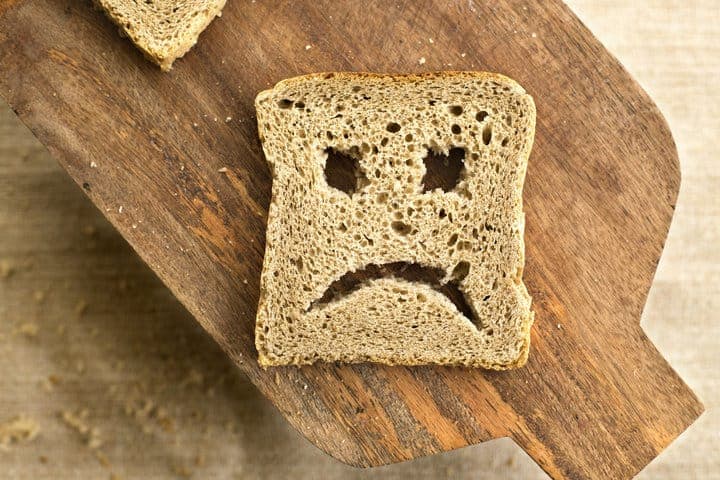Imagine having an illness that even your doctor can’t help you with. It leaves you swimming in a sea of confusion and distress. Celiac disease and gluten sensitivity are perfect examples of this problem.
When and if either is diagnosed, the next steps are unclear. The instructions to ” follow a gluten-free diet” may only be the first step. But who is guiding you beyond the start line? A strict, gluten-free diet is complex, and the lifestyle changes are overwhelming. Seeking out a celiac doctor or celiac specialist may be your best option.
Medical Training On Gluten Disorders Is Limited
Celiac disease is one of the most common genetic disorders
If a physician completed their training more than 10-15 years ago, they likely learned very little about celiac disease. Research regarding celiac and gluten sensitivity is evolving quickly. It is an ongoing challenge for physicians to keep current on all medical topics.
Gluten sensitivity was not seen as” legitimate” until recently. Research now proves gluten can make people ill, even if they do not have celiac disease.
Some physicians still do not believe celiac disease and/or gluten sensitivity are real. This occurs more frequently with gluten sensitivity but still happens with celiac disease.
Patients Often Know More Than Their Doctor
While it is true that awareness has improved, there is still controversy and misunderstanding. Nowhere is the resolution of this confusion more critical than in the doctor’s office.
As a board member of the Celiac Community Foundation of Northern California, I have volunteered for many years to educate physicians, dietitians, and community members on celiac disease and non-celiac gluten sensitivity.
Medical research has progressed rapidly surrounding these topics. However, the public’s understanding of “gluten” and “gluten-free“ fluctuates from understanding to scathing disbelief.
Ongoing Symptoms After A Gluten-free Diet: Here Is Why

Celiac Disease
A gluten-free diet is the treatment for celiac disease. But, the level of understanding of the diet needed for a celiac patient is deep. Most physicians know very little about nutrition. They leave the treatment entirely to someone else or the internet. Where else in medicine does this occur?
Treatment of celiac disease is not simple. Physicians typically assume a gluten-free diet is all that is needed. They believe it is easy to understand, and a visit to the dietitian or the internet will put the patient on the road to eternal wellness.
Instructing a patient about the gluten-free diet’s details would be prohibitively time-consuming for a physician, and this service is best provided by a knowledgeable registered dietitian (RD). However, I think it is important for physicians to understand the basics of the diet and the social challenges associated with adhering to it.
At the point of diagnosis, a physician should be able to hand the patient a basic information sheet, a handout on reliable resources, and a dietitian referral. In some cases, psychological services may also be appropriate. I know this happens sometimes, but it should happen every time, just as it does for patients with other chronic medical conditions.
Teeth Grinding And Associated Pain/Headaches Are Common In Gluten Disorders
Follow-up Care For Celiac Disease
Celiac patients should be followed regularly. If your physician is not aware of follow-up guidelines, bring them the celiac disease follow-up guidelines.
Most physicians assume a gluten-free diet treats celiac disease, and no follow-up care is needed. This goes back to a lack of education on the topic. If they presume no follow-up is required, there is less incentive to learn about the disease further.
Make the follow-up appointment yourself and show them the guidelines. Of course, every patient is an individual, and more evaluation may be needed. But, these guidelines are a great starting point.
What Is Mild Celiac Disease? Click here
Non-Celiac Gluten Sensitivity

Gluten sensitivity confuses and frustrates doctors and patients for several reasons:
When the topic is non-celiac gluten sensitivity, the awkward pauses between physicians and patients occur more frequently. There is confusion around this term, its definition, and its etiology. Few physicians understand the difference between celiac disease and gluten sensitivity.
If a patient has gluten sensitivity, further evaluation is needed to determine the cause.
Our scientific understanding of non-celiac gluten sensitivity (NCGS) is changing rapidly. We now know there may be other components in the wheat grain, causing symptoms once attributed to gluten.
Gluten sensitivity may be due to reasons such as FODMAP intolerance or ATI inhibitors. Both etiologies require treatment other than a gluten-free diet.
Regardless of the cause, it is up to the physician to determine the cause of their symptoms and provide appropriate treatment.
Worldwide 100% Gluten-free Restaurant Locator - It's Free
Other Practioners Fill The Void
Because patients are frustrated and discouraged by the lack of understanding, they seek help outside the traditional medical office.
They search out healthcare from alternative practitioners, or online bloggers, many of whom have limited or no medical training.
By no means am I stating that alternative practitioners or online information should not be a part of the care of these patients. Instead, I feel it is essential for medical doctors to be integral to the care team and work with all involved. But, in order to help their patients, they must first educate themselves to be able to provide accurate information. Online support groups and bloggers can also be helpful in filling in the gaps for situations such as practical needs and product information and gluten-free travel tips.
I challenge my physician colleagues to learn more about celiac disease and gluten sensitivity. Be the primary caregivers for people with celiac disease and non-celiac gluten sensitivity.
Physicians should not be influenced by the fact that there is a fad component to the gluten-free diet. Knowledge about gluten sensitivity is evolving quickly. It is our fundamental responsibility and privilege to treat our patients with skill, knowledge, and respect.
Unique Gluten-free Gift Ideas
Doctors Need More Training On Celiac & Gluten Disorders
Doctors need more training on celiac disease and gluten-related disorders
Physicians have to educate themselves in order to treat patients with symptoms associated with celiac disease and non-celiac gluten sensitivity. Many physicians are unaware of the science surrounding gluten and still assume that celiac disease is the only validated health issue involving gluten or wheat.
The internet has portrayed gluten as a farce and a fad. Physicians read the Internet too. If they do not understand the science behind what they are reading, they will be misguided.
I encourage my colleagues to educate themselves on both celiac disease and gluten-related disorders. Your patients deserve it.
Find Help For Celiac And Gluten Disorders
- My Website TheCeliacMD has numerous articles about celiac disease, gluten-related disorders, and related health issues.
- Celiac Testing Explained
- The Celiac Community Foundation of Northern California has a page for physician education and one for patient resources.
- Celiac Disease Foundation
- Columbia University Celiac Center
- University of Chicago Celiac Disease Center
- Gluten-free watchdog: Unbiased gluten-free food testing information for consumers
- Your doctor: Education of doctors is needed. I encourage you to provide high-quality educational materials to your physician. Email links or print out and bring materials to your doctor





